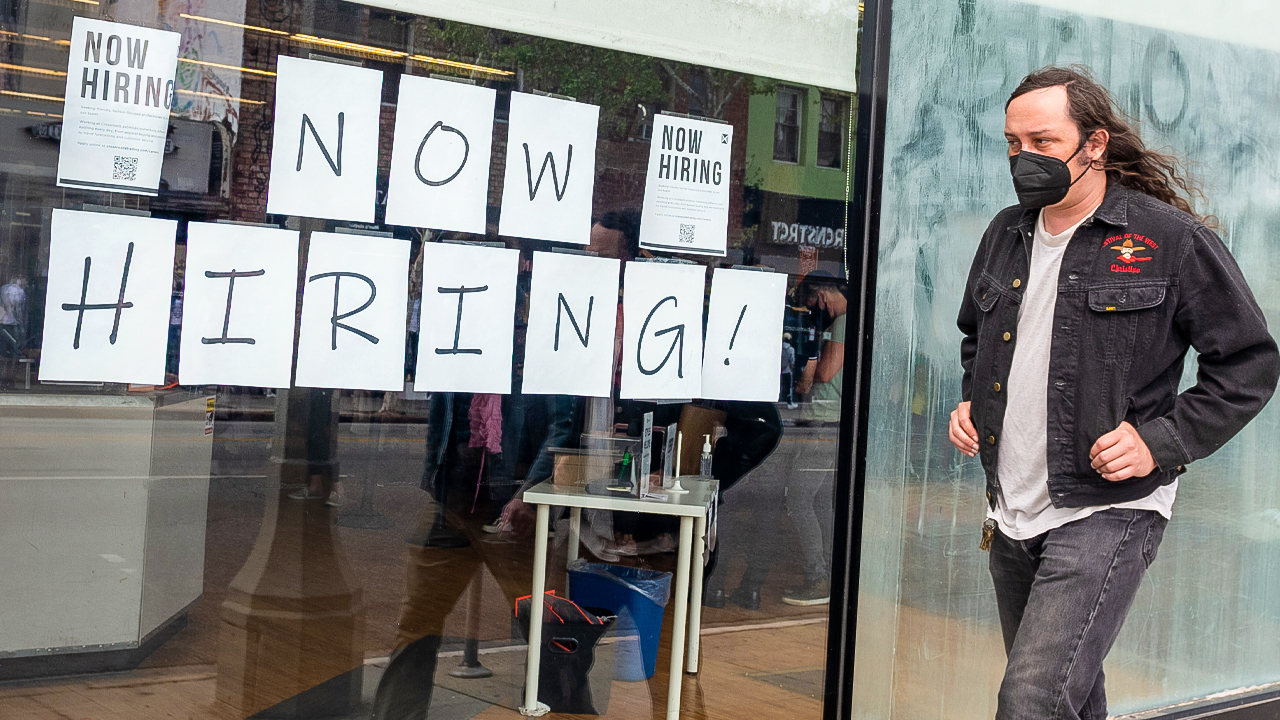Companies hiking wages at an 'unprecedented' rate, but it's likely a one-off
Average hourly earnings surged in June for the third consecutive month
Inflation 'outstripped' real wages: Former White House economist
Former Council of Economic Advisers Acting Chairman Tyler Goodspeed argues real wages have decreased because nominal wages are being ‘outstripped’ by inflation.
Companies across the country are raising wages at one of the fastest paces in decades, a bid to lure Americans back to the workforce as businesses struggle to onboard new employees – but the increase is probably just a "one-off," according to one economist.
Average hourly earnings surged in June for the third consecutive month, rising 3.6% from the year-ago period and 0.3% over the month, according to the Labor Department's monthly payroll report. That follows a 0.4% gain in May and a 0.7% jump in April.
THESE 26 STATES ARE ENDING $300 UNEMPLOYMENT BENEFITS - HERE'S WHEN
Low-wage workers appear to be the biggest beneficiaries of the pay increase, with industries such as leisure, hospitality and retail – which employ roughly 30 million people combined – reporting some of the strongest gains.
The increase is in part due to an unusual paradigm in the labor market: Businesses are desperate to hire workers and take advantage of the surge in consumer spending as Americans – flush with cash – venture out to eat at restaurants, shop and travel. Even though there are a record number of job openings, there are still 9.5 million unemployed workers.
Yet the current leverage that workers have over employers as the labor shortage persists is likely to be short-lived, according to Gregory Daco, the chief U.S. economist at Oxford Economics.
CONSUMER PRICES SURGE 5% ANNUALLY, MOST SINCE AUGUST 2008
"While lower-paying jobs are getting unprecedented wage growth, we believe this reflects a one-time releveling of low wages rather than a permanent shift in workers' bargaining power," he wrote in a recent analyst note.
Daco said the wage increases are likely "cyclical and transitory," arguing that consumers will begin pulling back on spending as the cost of goods and services continue to climb. With consumer demand curbed, businesses will lose their pricing power, while workers will lose their bargaining power, he said – especially in lower-wage occupations.
Unless higher profits and stronger productivity spur companies to factor higher inflation into their wage plans next year, Daco said he expects low wages to plateau as inflation settles to pre-crisis levels.
GET FOX BUSINESS ON THE GO BY CLICKING HERE
"With the labor share of income still near-historical lows, it doesn’t seem as though workers have permanently gained bargaining power," Daco wrote. "We believe the current dynamic reflects a one-time releveling of low wages. And it appears unlikely that companies will factor higher 2021 inflation into their wage-setting behavior in 2022."





















